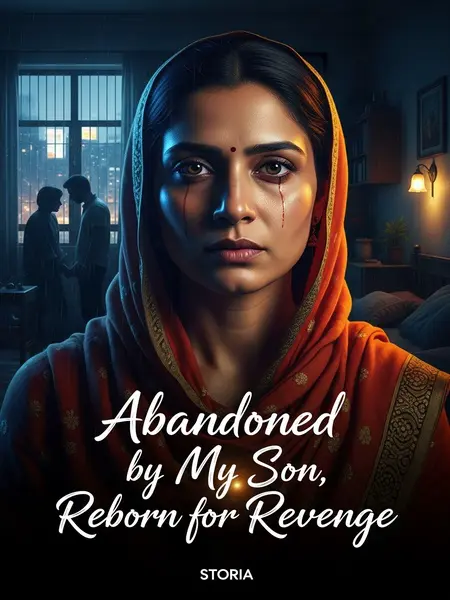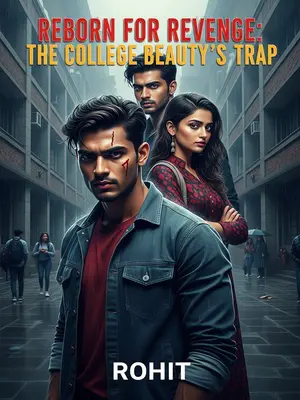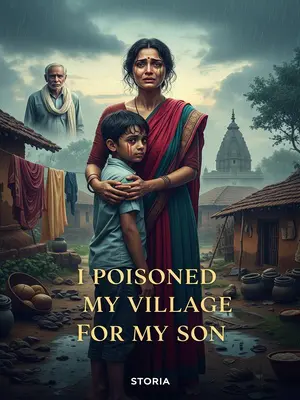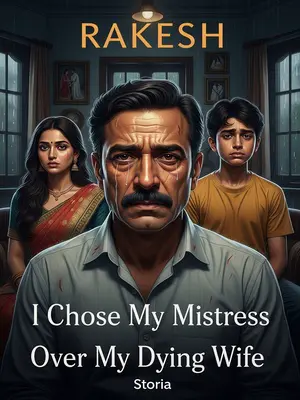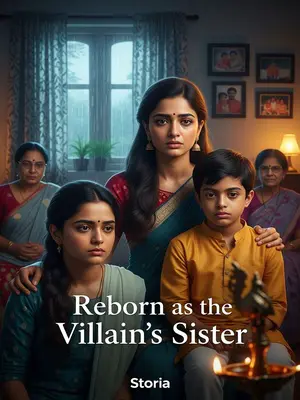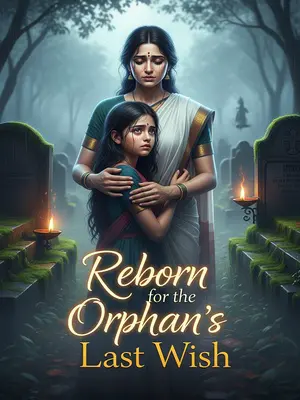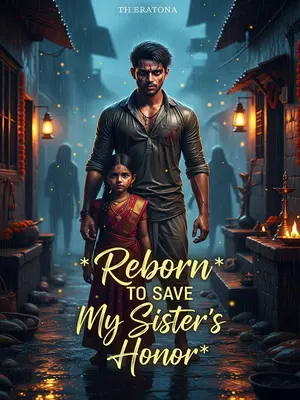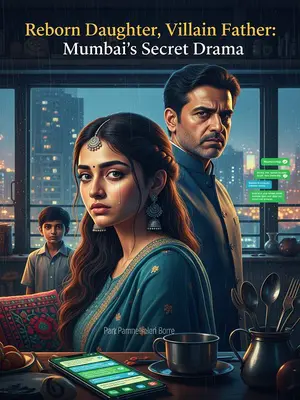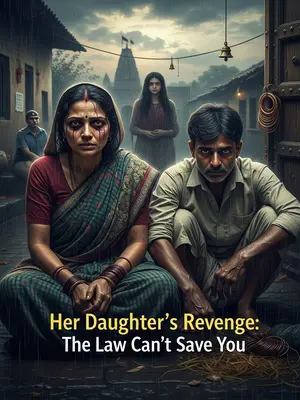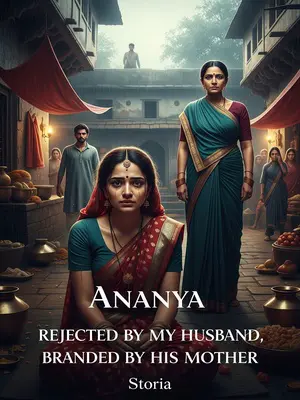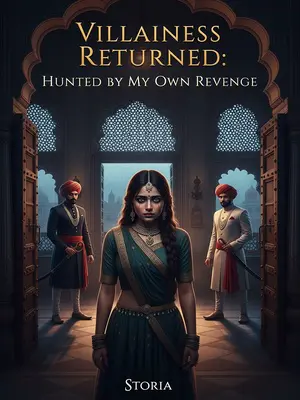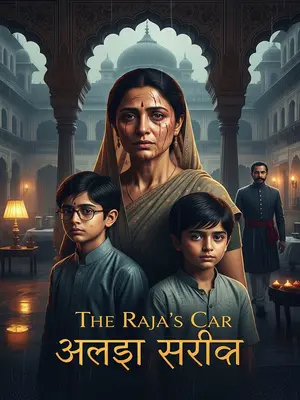Chapter 2: The Forgotten Mother
When the building supervisor found me, maggots had already started eating away at my leg.
I remember the day the door was broken down. The chowkidar called out, “Meera behen, sab theek hai?” My leg throbbed, pain blurring everything. Suddenly, my lonely flat was full—neighbours, society members, voices echoing in a place long forgotten by family.
I was hanging on by a thread, barely alive.
The doctor later called it a miracle I’d survived at all. The nurse, speaking soft Marathi, dabbed my forehead. “Bas, aunty, sab thik ho jayega.” The ambulance rattled below, aunties whispered outside, gossip already swirling like the Mumbai rains.
It was the first time in years that so many people came to my home.
It almost felt festive—Mr. Fernandes from 402 brought a blanket, Mrs. Sharma pressed a Parle-G into my palm, even the watchman asked, “Who will water the Tulsi plant now?” For a moment, I wasn’t invisible.
A young nurse gently fed me, urging me not to give up.
She held my hand, her touch warm and steady. “Aunty, thoda khao. Don’t give up, please.” Her kindness made my eyes sting. She felt more like family than anyone else had in years.
Someone asked, "How did it get this bad? Where’s her family?"
Society’s whispers, sharp as green chillies. “Her son is big shot, na? Rich, but where is he now?” “Modern kids forget parents so easily.” I lay there, shame prickling my skin like mosquito bites.
I couldn’t speak.
My voice was trapped somewhere between regret and surrender. I wanted to explain, to scream—but only a croak escaped.
They recognised Kabir from the wall full of photos.
Above the sofa, Kabir’s medals and certificates, a photo with a famous politician. Neighbours stared at the contrast: the successful son, the dying mother.
"Her son is so famous—a big entrepreneur, on the India rich list."
“His face came on CNBC last week!” “Married an NRI, owns companies.” “Bada aadmi, but maa ko bhool gaya.”
"Strange, why didn’t he take her along? Last interview he said his whole family was with him."
“Journalists ask, he says, ‘Family is everything’—lekin dekho? She’s alone.” Mrs. Sharma tut-tutted, shaking her head.
Soon, they helped me contact my son.
The nurse fumbled for my old phone, hands shaking. I tried to sit up, heart pounding like a tabla.
I strained to see him on the cracked screen.
Nearly twenty years since I’d seen Kabir. I remembered his childhood laugh, how he clung to my sari on the first day of school. Now, only a stranger remained.
He was already a man of fifty.
Hair flecked with grey, beard trimmed. The office behind him gleamed—glass, art, nothing like our old flat. But to me, he was still the little boy who hated karela.
I summoned all my strength and croaked, "Kabir..."
It came out broken, half-whisper, half-sob. The nurse and neighbours fell silent, as if holding their breath.
He frowned. "Why aren’t you dead yet?"
His words were colder than the floor of a ghat at dawn. “Arrey Ram!” gasped a neighbour. The nurse nearly dropped the phone. My heart cracked in two.
He hung up.
The beep was louder than any scream. The room shrank around me, like the narrow lanes of my childhood mohalla when the monsoon flooded every exit.
The volunteer called him again.
Bless her, she pleaded, “Kabir-ji, please, she’s not well. Can you come once?”
"How can you do this? Your mother is holding on just to see you."
Her frustration filled the room. I saw pity for us both in her eyes.
"The doctor says she doesn’t have much time. Shouldn’t you come and handle her affairs?"
In India, the eldest son is meant to do the last rites—log kya kahenge otherwise? But Kabir didn’t care.
A sharp click of impatience came through the line.
His irritation was palpable, even through the crackling speaker.
"Frankly, to me she’s a stranger. Whether she lives or dies, doesn’t matter."
His voice was as cold as the marble at the ghat. The pain in my chest spiked, the room spun.
"Whether you cremate her or scatter her ashes at the ghat, do whatever. Just don’t bother me."
He hung up. In this country, even strangers attend a funeral. But for me, my own son refused. The nurse squeezed my hand, her eyes bright with tears.
My own eyes overflowed.
Memories of Kabir as a child rushed in—rakhi, school plays, him calling ‘Maa’ in that sweet voice.
Scenes from his childhood to adulthood flashed before my eyes.
Running with his tiffin, cheering his first gully cricket six, buying him his first cycle on EMI. Every sacrifice, every sleepless night, all for him.
Then, one memory froze.
As if the universe wanted me to notice—a birthday, a wish, a moment of regret.
I was dazed.
I reached for that memory, but my vision blurred. The world spun, as if some power was taking pity on me.
Suddenly, I was in front of the bathroom mirror, my face young again.
Cheeks fuller, hair black except for a few hidden greys. I touched my face in disbelief, bangles chiming, the city humming outside. It was Kabir’s birthday, all over again.
I remembered the cool marble under my bare feet, the faint clang of a temple bell from the next lane, and the taste of fresh chai on my tongue. For a moment, I was truly reborn.
